From Film Comment (Spring 1972). — J.R.
According to the current issue of Pariscope – an indispensable guide to local moviegoing 260 films will have public screenings in Paris this week: 217 at commercial theaters, and 43 at the two Cinémathèques. By rough count, only 67 of these (about one fourth) are French. A hundred more are American, and the remaining 93 are split between fifteen other nationalities. Of the non-French films, approximately 40% are subtitled; except for a dozen or so at the Cinémathèques that will be shown without translation, the rest are dubbed.
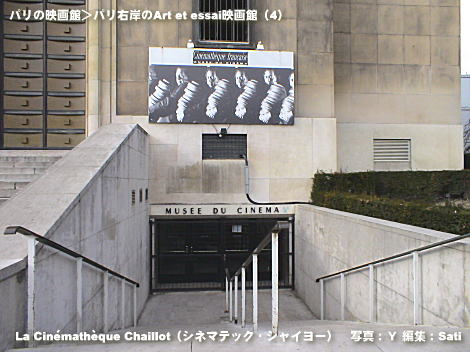
It is possible that New York is beginning to surpass Paris in the number of interesting films that one can see. Yet the paradox remains that, if one excludes television – an incomplete form of film-watching at best – Paris maintains a decisive edge in narrative American cinema. To list only a dozen of the current undubbed features, is there anywhere else in the world where one can see ANATOMY OF A MURDER, ALL ABOUT EVE, DUCK SOUP, EASTER PARADE, MODERN TIMES, SALLY OF THE SAWDUST, THE SALVATION HUNTERS, SCARFACE, STAGECOACH, THE STRONG MAN, TABU, and THE WEDDING MARCH in a single week?
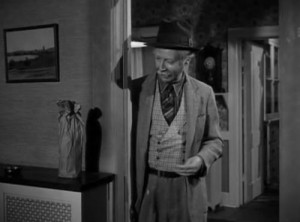
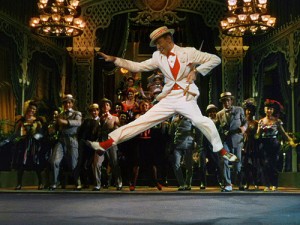
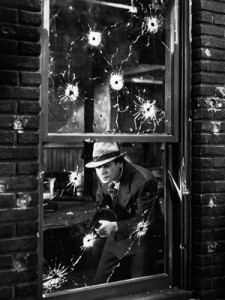
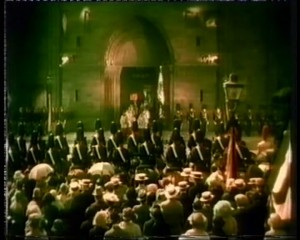
Aside from this particular kind of richness, there are pleasures, courtesies, and conveniences – as well as a few irritations – involved with Parisian moviegoing that one takes for granted here, but would not expect to find in the states. Read more
A chapter from my book Film: The Front Line 1983 (Arden Press, 1983), still in print. — J.R.

Jacques Pierre Louis Rivette
Born in Rouen, France, 1928
Perhaps no single figure in this survey dramatizes the contradictions of the avant-garde film as an institution and social force better than Jacques Rivette — a major filmmaker who has consistently been denied credentials, recognition, or any sort of protection by the “official” avant-garde establishment, even though his work has generally been shunned just as consistently by the mainstream power structures. Who, then, gives a damn about Jacques Rivette? More people than either establishment cares to acknowledge or deal with. As someone who has written a good deal about Rivette, programmed his films in three countries, and edited the only book devoted to him in English (or French), I can report that everywhere I go, I meet passionate Rivette fanatics.
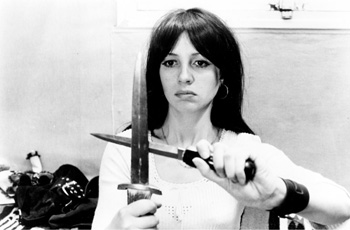
In London, I once met an American who dutifully translated most of Rivette’s old Cahiers du Cinéma reviews in his spare time, simply for his own amusement. I also once shared a Hampstead maisonette with a brilliant Israeli-born lecturer in philosophy of art whom I took to a screening of the four-hour Out 1: Spectre; he spent most of the rest of the night telling me why it was the greatest film ever made — only a sleepless day or so before he temporarily flipped his lid and tried to chop down part of our kitchen wall with a hatchet. Read more
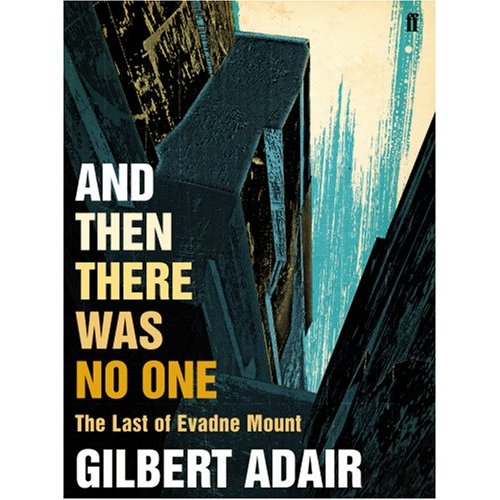
The third and most enjoyable of Gilbert Adair’s Evadne Mount mysteries, just published in the U.K., is by all counts the least satisfying or conventional as a mystery—even though Adair, who features himself as first-person narrator, largely compensates for this by shoe-horning in a rather brilliant pastiche of a Sherlock Holmes tale in the fourth chapter, roughly a third of the way through.
Adair is a master of pastiche whose best-known previous novels (and even one of his non-fiction books, Myths and Memories) all derive from literary models, so that Alice Through the Needle’s Eye is a brilliant Lewis Carroll spinoff, The Key of the Tower is an hommage to Alfred Hitchcock, and even his two best-known books, both made into films, The Dreamers (known in an earlier version as The Holy Innocents) and Love and Death on Long Island, are derived respectively from Jean Cocteau’s Les Enfants Terribles and Thomas Mann’s Death in Venice. The Evadne Mount novels, the first two of which are The Act of Roger Murgatroyd and A Mysterious Affair of Style, are all to varying degrees nods to Agatha Christie, to whom the latest is dedicated, but the postmodernist tricks and games with form, genre, and language tend to overtake the mystery elements—especially in the third, which gradually evolves into a rather merciless and scathing autocritique by Adair of his own literary narcissism as voiced by lady detective Mount, his own creation. Read more








